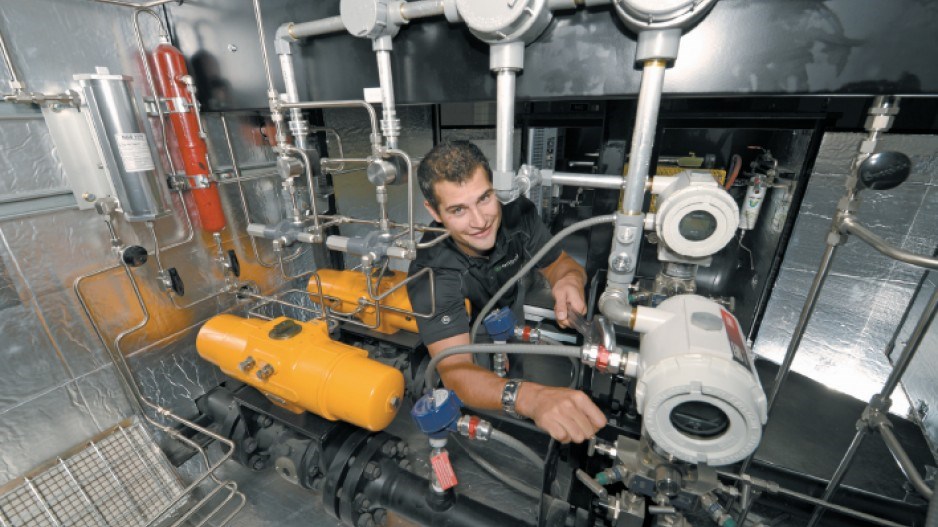The City of Surrey’s plan to create a clean-tech cluster is being given a jump-start in the hope it would match the success of its medical hub initiative (see “Surrey’s Innovation Boulevard gains momentum” – BIV issue 1253; October 29-November 4), which has exceeded expectations.
Despite generous incentives, including eliminating property taxes for three years, reducing building permit fees by half and dropping the business licence fee to $1 for the first three years of a company’s operation, clean-tech companies – apart from some early-stage ones – haven’t been flocking to the city.
“Clean-tech has been slower out of the gate than med tech has been in terms of pick up from industry,” said city councillor Bruce Hayne, chairman of Surrey’s Investment and Innovation Committee.
“But we’re making some significant strides.”
Hayne said the recent approval by council of an industry research chair in collaboration with Simon Fraser University (SFU) and Powertech Labs Inc., a spinoff of BC Hydro, will help ignite things.
“That’s really going to be a catalyst in terms of driving clean-tech and clean energy forward.”
Hayne added that SFU would be heading the global search for a suitable candidate with strong industry experience.
The research chair would have national and international contacts within the clean-tech sector and be required to raise research grants, something the city hopes would help attract “incubators” to the planned clean-tech hub.
Surrey is already home to several clean-tech companies.
They include Dependable Turbines Ltd., which has carved out a niche designing and manufacturing water turbines for micro- and small-scale hydroelectric power plants in North and South America, Asia and Africa.
Ensol Systems Inc., which specializes in industrial power solutions for remote and cold locations using clean power technologies such as solar and methanol fuel cells, has been in Surrey since it was founded in 2008.
The company’s operations lead, Jim Brasset described the clean hub initiative as “fantastic,” saying it could help foster innovation and creativity needed to bring clean technologies to market.
“If we bring more companies into the same area, then there’s more potential for collaboration and partnerships among them, and to develop this sort of technology, that’s a necessity.”
One challenge with clean-tech is moving technologies from research to commercialization.
Hayne said Surrey is trying to lead by example by sourcing clean technologies as part of its economic investment action plan.
It’s evaluating proposals for a facility that will convert green and food waste to biofuel, which will be used to power its waste collection trucks, and has installed what could be Western Canada’s largest district energy system underneath the new city hall.
“We want to foster an environment that promotes creativity and starts to generate some of these incubators,” Hayne said, “but with a view to really moving that to the commercial phase so the companies are actually making money doing this.” •




